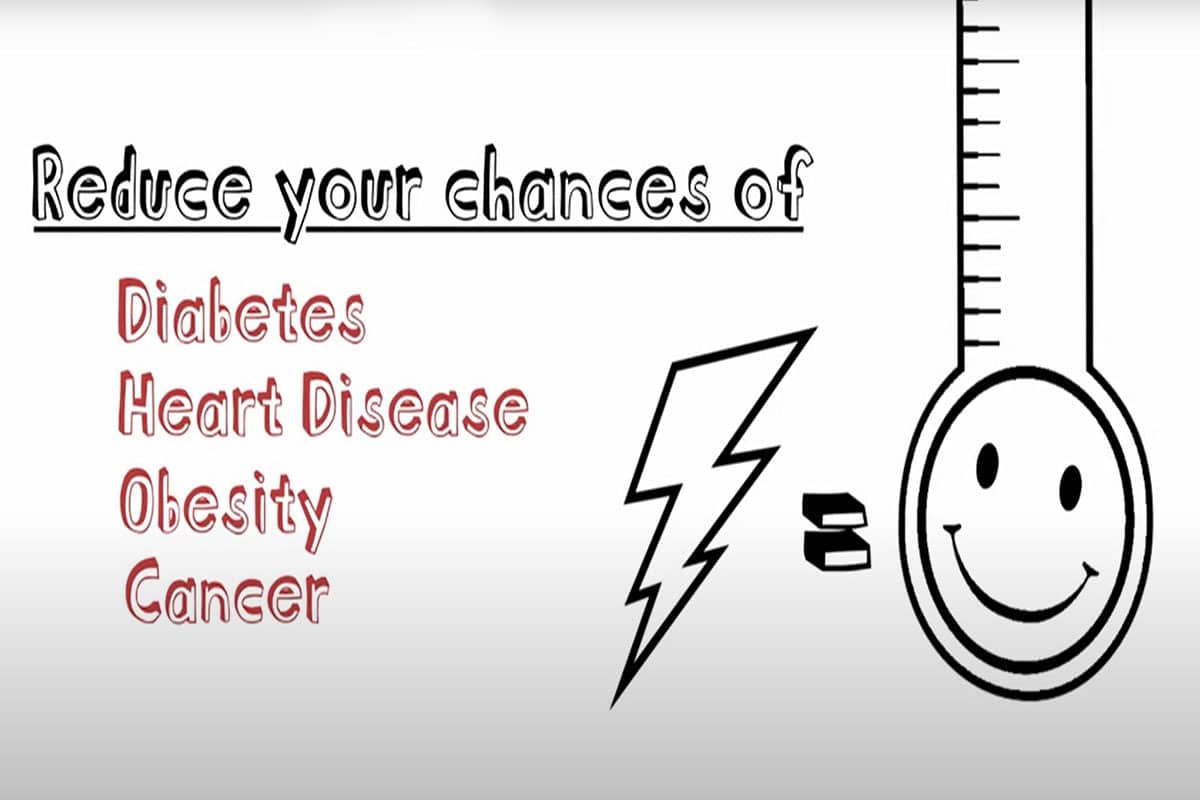The Phenomenon of No Weight Loss Despite Exercise
Have you ever experienced the frustration of working out regularly and pushing yourself at the gym, only to step on the scale and see no change in your weight? It’s a common phenomenon that many people encounter, and researchers have delved into the reasons behind this perplexing issue.
In a study conducted by the Pennington Biomedical Research Center, 171 overweight individuals were examined to unravel the mystery of why exercise alone doesn’t always lead to weight loss.
The study participants were divided into three groups. The first group continued with their usual sedentary lifestyle, while the second and third groups were instructed to engage in exercise three times a week.

Surprisingly, after six months of monitoring, the results revealed that the groups that exercised more did not experience significant weight loss compared to the sedentary group.
This puzzling outcome suggests that there must be factors beyond physical activity that contribute to weight loss.
The next part of the study aimed to uncover these hidden factors by analyzing the participants’ dietary habits and their relationship with exercise.
Stay tuned as we explore the intriguing findings that shed light on why exercise alone may not lead to shedding those unwanted pounds.
The Study: Unraveling the Enigma
In order to dig deeper into the perplexing issue of weight loss despite exercise, a rigorous study was conducted by the esteemed Pennington Biomedical Research Center in Baton Rouge, Louisiana.
The researchers aimed to unravel the secrets lying behind this phenomenon and find answers that could help individuals struggling with weight loss.
A diverse group of 171 overweight men and women between the ages of 18 and 65 were carefully selected as subjects for this study. All participants had one thing in common: a sedentary lifestyle with little to no physical activity.

This allowed the researchers to observe the effects of exercise on their bodies without any confounding variables.

The subjects were then divided into three distinct groups. The first group, known as the control group, continued with their usual sedentary lifestyle and served as a benchmark for comparison.
The second group, known as the moderate exercise group, was instructed to engage in exercise three times a week. Finally, the third group, referred to as the high-intensity exercise group, was given the task of exercising with a higher calorie burn goal.
Over a period of six months, the researchers meticulously monitored various aspects of the participants’ health and lifestyle. They kept a close eye on crucial factors such as metabolism, calorie intake, and overall fitness levels.
By doing so, they were able to gather valuable data that would help them uncover the truth behind the mystery of weight loss resistance despite exercise efforts.
Table: Summary of Study Groups
| Study Group | Exercise Regimen |
|---|---|
| Group 1 (Control) | Continued sedentary lifestyle |
| Group 2 (Moderate Exercise) | Exercise three times a week |
| Group 3 (High-Intensity Exercise) | Exercise with a higher calorie burn goal |
The study design aimed to shed light on the impact of exercise on weight loss in a controlled environment.
Through this rigorous approach, the researchers intended to gain insights that could potentially revolutionize weight loss strategies and help individuals struggling to shed pounds despite their exercise efforts.
Now, let’s delve deeper into the intriguing results that unfolded from this comprehensive study.
Did you know? The Pennington Biomedical Research Center in Baton Rouge, Louisiana, is dedicated to unraveling the mysteries surrounding weight loss and improving human health through scientific advancements.
The Results: Unveiling the Unexpected
After six months of meticulous monitoring and analysis, the findings of the study left researchers astounded.
Contrary to expectations, the groups that were required to exercise more did not experience significant weight loss or, in some cases, lost only a minimal amount of weight compared to the control group that did not exercise.
These unexpected results prompted further investigation into the factors influencing weight loss and the complex relationship between exercise and calorie intake.
In the second group, where participants were instructed to engage in moderate exercise three times a week, two-thirds of the individuals actually lost less weight than anticipated.
This outcome puzzled the researchers, as they expected that increased physical activity would result in a more significant reduction in body weight.
Similarly, in the high-intensity exercise group, over 90% of the participants experienced less weight loss than initially projected.
These findings suggest that there are underlying factors at play that hinder weight loss despite increased exercise.
The researchers delved deeper into these factors and made an intriguing discovery: calorie intake and eating habits played a significant role in the lack of weight loss among the participants.
Exercise may boost metabolism and improve overall health, but it is not a magical remedy for shedding pounds without addressing dietary habits.
The Explanation: Trading Sweat for Treats
The unexpected results of the study led researchers to closely examine the eating habits and calorie intake of the participants.
It turned out that despite exercising more, many subjects consumed more calories than before.
Interestingly, this increased caloric intake was not solely driven by hunger but also served as a reward system for their efforts.

This mental trade-off between exercise and unhealthy eating habits played a crucial role in hindering weight loss.
Participants seemed to justify indulging in extra treats or larger portions because they believed that their physical exertion compensated for it.
This mindset ultimately sabotaged their weight loss goals despite regular exercise.
Eye-opening fact: Researchers found that people tend to overestimate the number of calories burned during exercise, leading them to consume more calories afterward as a reward, negating any potential progress toward their weight loss goals.
In light of these findings, it becomes apparent that addressing only one aspect of weight management – exercise – is not sufficient for achieving lasting results.
A holistic approach that takes into account both physical activity and dietary habits is essential for successful and sustainable weight loss.
So, what can those struggling with shedding pounds do? Instead of giving in to the temptation to reward themselves with food after working out, they should focus on maintaining or even slightly reducing their overall calorie intake while continuing an active lifestyle.
By doing so, individuals can break free from the mental trade-off between sweat and treats, paving the way towards successful weight loss.
The Importance of Consistency: Slow and Steady Wins the Race
When it comes to achieving and maintaining weight loss, consistency is the name of the game. A “stop-and-go” approach to either exercise or diet may not yield satisfactory results in the long run.

By adopting a consistent routine that includes regular physical activity and a balanced diet, individuals are more likely to experience steady progress towards their weight loss goals.
Moreover, consistency helps in building healthier habits that become second nature over time.
Golden rule: To achieve lasting weight loss success, make both exercise and a nutritious diet integral parts of your daily life. Embracing consistency will empower you to reach your goals with determination and persistence.
The Psychological Aspect of Weight Loss: Mind Over Matter
When it comes to weight loss, the psychological aspect carries significant weight alongside the physical factors. Our mindset, including reward systems and self-discipline, plays a vital role in determining our success in shedding those stubborn pounds.
Developing a healthy relationship with food and exercise requires mental resilience.
It’s essential to resist the temptation to use food as a reward for working out or to indulge in unhealthy choices due to momentary cravings.
Practicing self-discipline and cultivating positive habits can greatly impact our ability to stay committed to our weight loss journey.
Here are some strategies for strengthening the mental aspect of weight loss:

- Set realistic goals: Break down your ultimate goal into smaller, achievable milestones that will keep you motivated along the way.
- Be patient: Remember that lasting change takes time; don’t expect overnight miracles.
- Celebrate non-scale victories: Focus on improvements in overall health, energy levels, and how clothes fit rather than obsessing over numbers on a scale.
- Stay accountable: Share your goals with friends or family members who can support you throughout your journey.
- Practice mindfulness: Stay in tune with hunger signals and avoid emotional eating by addressing stressors through healthier coping mechanisms.
Mental mantra: “A strong mind builds a strong body.” Embrace both physical and psychological aspects of weight loss by nourishing not only your body but also your mind throughout this transformative process.
A Winning Strategy for Weight Loss: The Perfect Balance
The journey to successful weight loss requires a combination of physical and mental efforts, converging on striking the perfect balance between regular exercise and mindful eating.
To maximize results, it is crucial to avoid falling prey to the temptation of overindulging in food after completing a workout.

To ensure that your hard work at the gym does not go wasted, it’s important to maintain or even slightly reduce your calorie intake despite increased physical activity.
Remember that weight loss can only be achieved when you burn more calories than you consume.
For sustainable and healthy weight loss, consider adopting one or both of these strategies:
- Reduce daily calorie intake by 90 or more: Cutting down on empty calories found in sugary treats or processed foods can make a significant difference over time.
- Increase endurance training: Incorporate moderate-intensity exercises such as jogging, cycling, or swimming into your routine to boost fat burning and improve overall fitness levels.
Optimal fat burning is achieved with moderate-intensity endurance training instead of short bursts of high-intensity workouts. By incorporating steady-state cardio exercises into your routine, you are setting yourself up for long-term success in reaching your weight loss goals.
In conclusion, embracing a balanced approach that emphasizes both physical activity and mindful eating habits empowers individuals striving for weight loss success.
Stay committed to this winning strategy, and watch yourself transform as you progress towards a healthier version of yourself!
I’m Amy, a health blogger who’s passionate about helping people achieve their weight loss and wellness goals through evidence-based information and practical tips on nutrition, exercise, and self-care. When I’m not blogging, I enjoy hiking, practicing yoga, and experimenting with healthy recipes in the kitchen.










